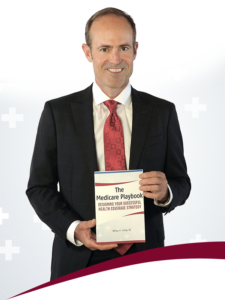| August 2022 | MediGap Advisors Health & Wealth Newsletter | Vol. 18, Issue 8 |
What You Can Do During Medicare Open Enrollment
What is the Medicare Open Enrollment Period?
Medicare open enrollment – sometimes called the annual election period – runs from October 15th through December 7th every year. During this period, you can reevaluate your Medicare coverage and make changes to your Medicare health insurance plan, including your Medicare Part D (prescription drug) plan.
What Changes Can I Make To My Medicare Coverage?
During the Medicare open enrollment period, you can make any of the following changes:
Switch from Original Medicare to a Medicare Advantage (Part C) plan, or vice versa
- Switch from one Medicare Advantage policy to another
- Switch between Part D (prescription drug) plans
- Drop your existing Medicare Part D plan.
- Join a Medicare Part D plan (late enrollment penalty may apply if you don’t already have creditable coverage).
Note: If you do drop your Medicare Part D plan, and you don’t maintain creditable coverage elsewhere (such as an employer’s plan or private health insurance plan), you may face a late enrollment penalty if you want to re-enroll in Part D. That means you’ll pay a higher premium.
You may also face a late enrollment penalty if you enroll in a Part D plan after your initial enrollment period, unless you have maintained creditable coverage elsewhere.
What you can’t do during open enrollment period?
If you did not enroll in Medicare when you were first eligible, you can’t use the open enrollment period to sign up for the first time. Brand new Medicare enrollees who missed their initial enrollment period must wait until the Medicare general enrollment period, which runs from January 1st through March 31st every year.
You also can’t use the fall Medicare open enrollment to switch Medicare supplement, or Medigap plans, and avoid medical underwriting. While you can apply for a new Medigap plan at any time, guaranteed issuance only applies to Medigap plans during your initial enrollment period, or when certain conditions apply.
Why should I change my Medicare coverage?
There are many reasons it might make sense to make changes to your Medicare coverage:
Your medical situation may have changed. You may develop medical conditions later in life, or need different medications. For example, you may want to exchange your existing Part D plan for one that includes a drug you need in their formulary. Or you may want to switch from a Medicare Advantage plan to a different plan because you want to see a doctor who is not included in your Medicare Advantage plan’s network.
Your location may have changed. While Medicare supplement plans work anywhere in the country, Medicare Advantage relies on regional networks of doctors and care providers. If you move to a different city, you may need to switch to a different plan.
Your budget may have changed. You may decide you can no longer afford certain plans, or that you can afford to improve your coverage.
Your existing plan may have changed. Medicare plans regularly change their pricing structure, provider networks, drug formularies, etc. If your plan changed, you should investigate whether it’s still the best option for you.
A new plan may be available. Medicare insurance carriers occasionally roll out new plan features and benefits, or expand their networks to new areas.
When do my Medicare open enrollment elections become effective?
If you make changes to your Medicare coverage during the open enrollment period, the changes become effective as of January 1st the following year.
What if I need to make changes outside of open enrollment?
It is sometimes possible to make changes to your Medicare coverage even outside of the open enrollment window. If you have lost health insurance coverage due to a relocation or to extenuating circumstances, you may be granted a special enrollment period that will allow you to make changes to your Medicare plans outside of open enrollment.
Here are several examples of situations that may qualify you for a special enrollment period:
- You move out of your plan’s service area.
- You move into a nursing or assisted living facility
- Your existing plan loses its Medicare contract
- You lose your retiree or COBRA medical coverage
- You are released from jail
- You become eligible for Medicaid
- You develop a severe or disabling condition and there’s a Medicare Special Needs Plan available in your area that serves people with that condition.
What to do now?
If you are happy with your current Medicare supplement or Medicare Advantage plan, you don’t need to do anything. Your plan will automatically renew for the coming year, and you can worry about something more important, such as the long-term viability of our Medicare program.
If you do want to make some changes, we’re here to help!. Your Personal Benefits Manager can help you analyze your situation and the options, and help you select the best Medicare strategy for you.
Click here to schedule an appointment, or call 800-913-3416 to get started.


Wiley P. Long, III
President – MediGap Advisors

